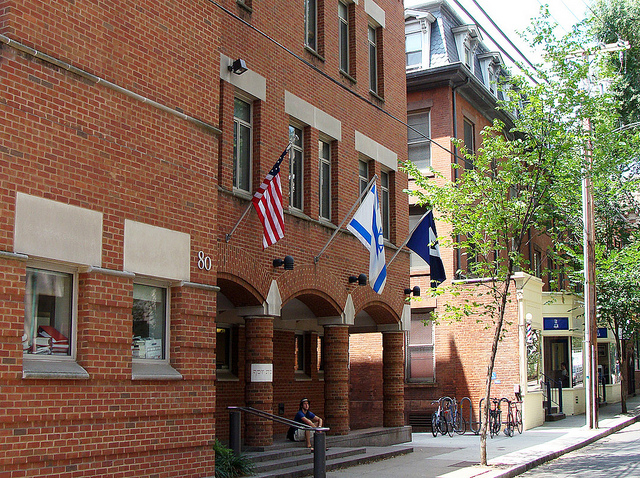
We hear it all the time: The American Jewish community is in decline. Interest is lacking, affiliation is down — and Jewish babies are popping out less frequently than we would like. If members of the Jewish establishment are correct, the future of American Judaism is in great peril, and if we don’t do a better job of engaging young people, the continuity of the Jewish people will be more and more tenuous as the years go by.
All of those assumptions are debatable, but let’s focus in one corner of American Jewish life: There has never been a better time to be a Jewish college student in the United States.
Let’s start off with some numbers. In 1924, 3.6% of students at Princeton University were Jewish. This figure was seen as disturbingly high, and a quota of 2% was instituted. A variety of quotas were in effect there until the 1960s. Today, however, that figure has multiplied by six, and 13% of Princeton’s student body is Jewish.
Until the 1970s, another important number was zero. That was precisely how many Jewish or Judaic Studies programs there were at American Universities. Today that number is over 100. Similarly, Hillel has expanded rapidly over the last few decades, Chabad has increased its nationwide presence and Jewish fraternities and sororities exist at hundreds of universities around the country. Other organizations have created on-campus fellowships to promote Jewish life, learning, or Israel advocacy.
The resulting college campus is a veritable buffet of Jewish options, offering a ton of channels for individual Jews to deepen their engagement with Judaism. Even on smaller campuses, where perhaps there are only a handful of Jews, there is usually at least one organization working to provide Jewish opportunities.
The obvious criticism of all of these numbers is that they represent quantity and not quality. If there are 47 functioning entities creating Jewish programming for college students, and most of them are achieving very little, then the numbers simply do not matter.
While some groups are certainly doing better work than others, we can confidently say that, for the most part, each piece of the puzzle is serving students well. That is, after all, the real goal. We have seen people sign up for one or two semesters of Hebrew on a whim, only to have it completely change the way they experience prayer. We have watched friends who previously saw Orthodox Jews as scary and backwards experience a fundamental transformation through an educational experience with groups like Chabad and MEOR. We have seen closed minds open up to new perspectives, thanks to the presence of multiple Israel-Palestine advocacy organizations on many campuses.
We are not here to argue that college campuses are perfect. College students must confront the same difficulties that other members of the Jewish community deal with, and they even have a few unique challenges of their own. Israeli Apartheid Week often provokes more screaming matches than discussions. Some Orthodox organizations have been known to craft programming that seems more like brainwashing than learning. Hillel offers its fair share of chocolate seders and bagel brunches that can easily fall short of educational goals.
But we also know that on any given Friday night, and on Jewish holidays throughout the year, there are thousands upon thousands of Jewish college students connecting to Jewish tradition. On normal, more boring days, thousands upon thousands of Jewish college students are doing homework assignments about Jewish text, history, and culture in their academic classes.
From an outsider’s perspective, it is easy to see Jewish campus life as an increasingly upsetting series of pros and antis, mostly surrounding Israel and Palestine. It’s easy to talk about how the Orthodox right-wingers are teaching students that Judaism is their way or the highway. But on most days, there’s no mock security fence (or wall, or barrier, depending on your political preferences) on the quad, and professors utilize their classes for something other than anti-Semitic rhetoric. You will be more likely to find a Chabad rabbi talking to frat bros about what constitutes kosher beer than discussing why homosexuality is wrong.
Opportunities for Jewish engagement abound on college campuses today. We know there are important problems to tackle. And hopefully they will be addressed. But we’ve had enough of the public predictions that the next generation will have no interest in continuing what the old guard worked so hard to preserve. Rest assured, we value the future just as much as past generations have. And, whether you know it or not, we are already shaping it.
